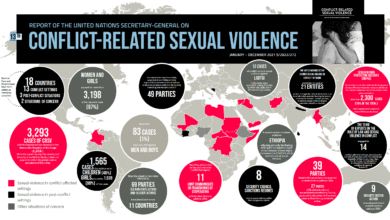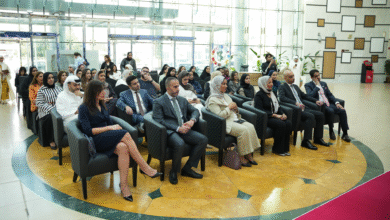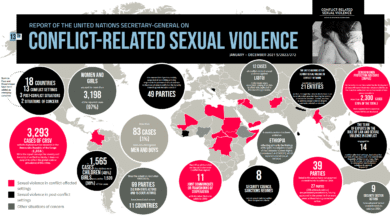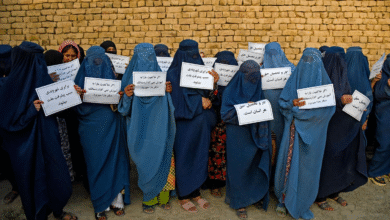Women’s Rights and the UN: Remembering the Trailblazers
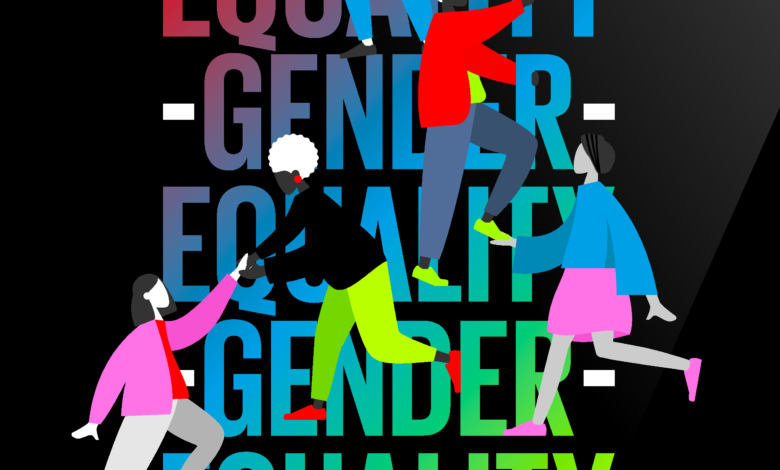
Women’s rights and the UN are intricately woven into the fabric of global human rights activism, a legacy shaped by pivotal figures like Eleanor Roosevelt. As one of the architects of the Universal Declaration of Human Rights, Roosevelt’s vision emphasized gender equality as a fundamental aspect of human dignity. This commitment resonates strongly today, as we honor the contributions of women leaders who have tirelessly fought for women’s rights, bringing significant changes in societal norms and legal frameworks worldwide. At recent events, speakers reflected on the ongoing struggles and triumphs in the quest for gender equality, reminding us that the fight is far from over. In recognizing the past, we must also mobilize for the future, ensuring that the ideals set forth by these trailblazing women continue to guide us towards achieving true equality for all.
The United Nations plays a critical role in advocating for women’s rights, engaging in initiatives that promote fairness and justice across genders. Often regarded as a cornerstone for human rights, the UN champions a vision where every woman is empowered, and their rights are recognized and protected globally. Pioneers like Eleanor Roosevelt and modern advocates alike have revitalized discussions around gender issues, urging both governmental and societal reforms. While significant strides have been made, challenges persist, necessitating ongoing dialogue and activism to safeguard the progress achieved thus far. Through collaborative efforts and continued advocacy, we can work towards a world where gender equality is not just an aspiration but a reality.
The Legacy of Eleanor Roosevelt in Women’s Rights
Eleanor Roosevelt stands as a monumental figure in the realm of human rights activism, particularly for women’s rights, and her legacy remains relevant today. As one of the architects of the Universal Declaration of Human Rights, her commitment to gender equality paved the way for countless women leaders who followed in her footsteps. Roosevelt famously proclaimed, “Where, after all, do universal human rights begin? In small places, close to home,” emphasizing that the true essence of human rights starts from grassroots activism. Her belief that ordinary citizens can lead the fight for their rights is a call to action for all, especially women who have often been marginalized.
Roosevelt’s influence can still be felt within the United Nations, where her vision of equality and justice resonates in current discussions about women’s rights. Throughout her life, she advocated fiercely for the needs of women, urging that their voices be heard in every sphere of society. Recognizing her contributions reminds us that the struggle for gender equality is ongoing and that we must continue to champion the rights of women everywhere.
Women’s Rights and the UN: A Historical Perspective
The United Nations has long served as a platform for advancing women’s rights globally, with pivotal moments marked by various influential figures and landmark events. The Universal Declaration of Human Rights, promoted by Eleanor Roosevelt, sparked a global movement advocating for gender equality. Over the decades, women like Gertrude Mongella and Vijaya Lakshmi Pandit have played crucial roles in shaping UN policy and addressing the pressing issues faced by women worldwide. Their work has often served as a catalyst for legislative changes and broader societal reforms aimed at eradicating gender discrimination.
However, the recent reports indicating a backlash against women’s rights illustrate that progress is not linear. While joyous milestones have been celebrated, the persistent inequalities highlight the necessity of constant vigilance and advocacy. The UN continues to serve as a beacon of hope for women and girls facing adversity globally, reminding us that concerted efforts are essential in combating ongoing challenges related to gender-based discrimination and violations.
The Role of Women Leaders in Advancing Gender Equality
Women leaders have historically played an essential role in furthering the cause of gender equality, and their impact is seen today across various sectors. These trailblazers, including figures like Vijaya Lakshmi Pandit, not only broke barriers but also inspired future generations to follow suit. Their contributions to women’s rights illustrate the importance of representation at all levels of governance. Pandit’s legacy as the first female president of the UN General Assembly marked a turning point, proving that women’s participation is crucial in the decision-making processes that shape policy.
Moreover, as gender equality remains a pressing issue, the necessity for women leaders in all fields continues to grow. Their insight and experience can guide effective policymaking that supports women’s rights and empowers future generations of women to step into leadership roles. The ongoing struggle for gender equality emphasizes the need for mentors and educators to nurture emerging female leaders within our communities.
The Importance of Grassroots Movements for Women’s Rights
Grassroots movements have historically been the backbone of efforts to advance women’s rights, echoing Eleanor Roosevelt’s assertion that change begins in small places. These movements are often comprised of ordinary citizens who mobilize, advocate, and create meaningful change from the ground up. From community organizing to social media campaigns, grassroots activism empowers women to assert their rights and challenge systemic injustices. By fostering an environment where voices can be heard, these movements create a foundation for broader societal change.
Additionally, grassroots campaigns often complement policies enacted at the international level by ensuring that local needs and concerns inform broader initiatives. The knowledge and experiences drawn from these efforts are invaluable and often lead to more effective and inclusive solutions to gender inequality. Supporting grassroots movements is vital for reinforcing the connections between community action and policy-making, ultimately promoting a society where women’s rights are recognized, respected, and upheld.
Milestones of the Beijing Conference and Its Impact
The Fourth World Conference on Women held in Beijing in 1995 marked a significant milestone in the history of women’s rights, establishing a global agenda for gender equality. The conference laid the groundwork for strategic action in various sectors, addressing issues such as health, education, and violence against women. Leaders like Gertrude Mongella, often referred to as ‘Mama Beijing’, played an influential role in advocating for these critical issues, emphasizing that the decisions made at the conference continue to impact women’s lives around the world.
Despite the strides made since the Beijing Conference, reports indicate a backlash against women’s rights, suggesting that the momentum gained is fragile. The commitment shown during the conference must be revived and reinforced as countries worldwide grapple with challenges like discrimination and reduced funding for women-focused initiatives. The legacy of the conference calls for renewed vigilance and action, reminding us that progress in women’s rights must be actively maintained and expanded.
Rethinking Technology’s Role in Women’s Rights Advocacy
As technology continues to evolve, its role in the advocacy for women’s rights has both empowered and complicated the narrative. While digital tools have provided unprecedented platforms for women’s voices, they have also been misused to perpetuate harassment and discrimination. Eleanor Roosevelt likely would have voiced caution regarding technology’s impact on human connection, as seen in her belief that media may detract from personal dialogue. In today’s context, focusing on how technology can facilitate rather than hinder grassroots organizing is vital.
Nonetheless, technology holds immense potential for amplifying women’s rights activism. Social media campaigns can elevate issues that affect women globally, while online educational platforms can provide critical resources for empowerment. It is essential for activists and organizations to harness this potential responsibly, ensuring that technology serves as a means of fostering genuine engagement and solidarity among activists worldwide.
Current Challenges in Achieving Gender Equality
Despite significant strides towards gender equality since the Universal Declaration of Human Rights, contemporary challenges persist. Reports from UN Women highlight a disturbing trend of regression in women’s rights, with many governments experiencing increased discrimination and reduced legal protections. These challenges underline the critical need for sustained advocacy and international collaboration to mobilize resources and policies that support women’s rights. The alarming statistics serve as a reminder that vigilance is necessary to prevent backsliding in the fight for equality.
Activists, leaders, and policymakers must come together to address these challenges head-on. By recognizing the systemic barriers women face, we can foster discussions that lead to significant legislative changes necessary for safeguarding women’s rights. The call to action is clear: we must remain committed to advancing gender equality and providing support for initiatives that uplift women across all sectors of society.
Inspiring Future Generations of Women Activists
Inspiring the next generation of women activists is essential for ensuring the continued progress of gender equality. By sharing stories of trailblazers like Eleanor Roosevelt, Gertrude Mongella, and Vijaya Lakshmi Pandit, we can instill a sense of purpose and empowerment in young women. Engaging youth through education, mentorship, and activism not only honors the legacy of these formidable leaders but also reinforces the belief that every woman can make a difference.
Programs aimed at fostering leadership skills among girls and young women can provide them with the tools to navigate and challenge societal norms. Collaborative initiatives that encourage young activists to advocate for their rights help cultivate an environment where gender equality is not just a goal but a shared responsibility. As we look to the future, nurturing the next generation of women leaders is paramount in ensuring that the struggle for women’s rights remains alive and vigorous.
Frequently Asked Questions
What role did Eleanor Roosevelt play in advancing women’s rights and the UN’s commitment to gender equality?
Eleanor Roosevelt, as a key figure in human rights activism, was instrumental in shaping the Universal Declaration of Human Rights (UDHR) in 1948. She emphasized the importance of grassroots activism for women’s rights, famously stating that human rights begin in small places close to home. Her legacy continues to influence the UN’s commitment to gender equality and advocacy for women’s rights.
How does the Universal Declaration of Human Rights relate to women’s rights?
The Universal Declaration of Human Rights (UDHR) serves as a cornerstone for the advancement of women’s rights by affirming that all human beings are entitled to fundamental rights and freedoms. Although women’s rights have seen progress since its adoption in 1948, ongoing efforts are crucial to address persistent inequalities and discrimination against women globally.
What has been the impact of the Fourth World Conference on Women held in Beijing on gender equality today?
The Fourth World Conference on Women in Beijing, led by figures like Gertrude Mongella, was pivotal in establishing a global agenda for gender equality. The decisions made at this conference catalyzed changes in laws and policies around the world, enabling women to take on leadership roles and challenge long-standing societal norms.
What current challenges do women face in the context of the UN’s goals for gender equality?
Despite advancements, women today face significant challenges, including increased discrimination and reduced legal protections, as highlighted in the UN Women’s report on Women’s Rights in Review. These challenges underscore the need for continued commitment to uphold and promote women’s rights within the UN framework.
Who are some notable women leaders in the UN’s history, and what contributions did they make to women’s rights?
Notable women leaders such as Vijaya Lakshmi Pandit, the first woman President of the UN General Assembly, and Gertrude Mongella, known as ‘Mama Beijing’, have made significant contributions to women’s rights. Their leadership and advocacy have helped shape policies and initiatives that promote gender equality within the UN and around the world.
How can community activism strengthen the UN’s efforts in promoting women’s rights?
Community activism plays a vital role in reinforcing the UN’s efforts in promoting women’s rights by addressing local issues and mobilizing citizens to advocate for change. As Eleanor Roosevelt highlighted, meaningful rights begin at home, making grassroots movements essential for advancing gender equality and ensuring that voices of women are heard and represented.
| Key Figures | Contributions | Challenges |
|---|---|---|
| Eleanor Roosevelt | Advocated for civil rights and the UDHR; emphasized grassroots activism. | Ongoing struggles with societal norms and technology obstructing dialogue. |
| Gertrude Mongella | Key figure at the Fourth World Conference on Women; emphasized implementation of gender equality decisions. | Reported backlash against women’s rights; discrimination and weakened protections in many countries. |
| Vijaya Lakshmi Pandit | First female President of the UN General Assembly; advocate for women’s education and health. | Faced house arrest for activism against authoritarianism; highlights ongoing political challenges. |
Summary
Women’s rights and the UN play a crucial role in shaping the global conversation around gender equality. The legacy of pioneering women like Eleanor Roosevelt, Gertrude Mongella, and Vijaya Lakshmi Pandit reminds us of the enduring struggle for human rights. Despite significant milestones, the fight for women’s rights continues as we confront new challenges and backlash against progress. As we honor these trailblazers, it is essential to pursue their vision by advocating for protections and advancements in women’s rights both locally and globally.

